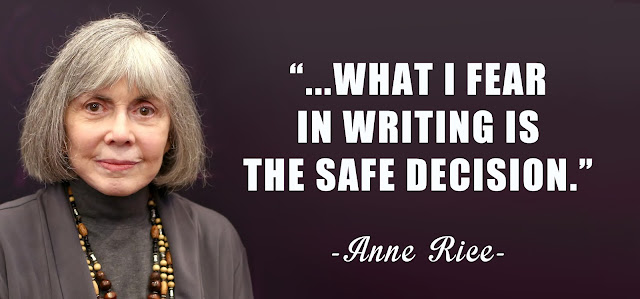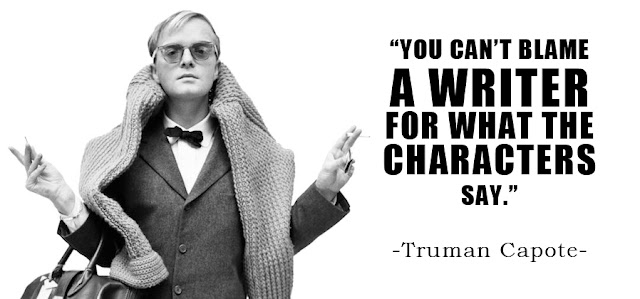In fiction, sometimes characters are ignorant, rude, or offensive.
That's not the author's fault, that's the author's job.
Let's define offensive language as words that are traditionally used to harm. Insults of varying degrees, triggering language, even slurs.
Most triggering language should only be used after careful consideration, if at all. Writers are responsible not only for telling an evocative story but also for balancing on the line between not enough and too much, because sliding into too much will spoil the experience for readers, but being too afraid to trust your instincts and take chances will settle you into the mediocrity of not enough.
(The type and tone of a story dictates where that line falls. A children's book uses drastically different insults than a horror novel, for example.)
I've read stories where it wouldn't make sense for a character not to use offensive language, where the occasional use made the story fuller and the characterization richer (i.e. murderers -- not known for treating people with respect). I could appreciate the skill of the lines as a fellow writer and felt that the offensive terms were done well in the context of characterization and setting (and, most importantly, not overused).
On the other hand, I once read an article about a famous writer who used all sorts of offensive language in his work but then had to write about the protests when segregation was being torn down. The language of those protests was so offensive, he couldn't bring himself to quote it. Instead, he talked around the words, focusing on the feelings they evoked, describing their message instead of repeating it. He described it with words of queasiness, horror, unease, violence, and fear. He gave the feelings of the words, and it was evocative without having to be precise.
Everyone has their limit. It's why I respect writers who give warnings for certain types of language in their work. If I know racial slurs are going to be in something, it's a pass from me, and I mentally tip my hat at them with a "thanks" as I scroll past because it was considerate of them to let me know.
In day-to-day life, when someone uses a word that bothers you, it's okay to ask them not to use it around you. Your feelings are valid, and if that person respects your boundaries, they should comply.
But there are limits to what you can demand from others.
When I was in middle school, I policed cursing until a friend's boyfriend gave up and snapped that he wasn't going to bother anymore. There was nothing I could do about it, but looking back I think I would have had better results if I'd started from a place of compromise and been a little more lenient to his slip-ups. My request wasn't wholly unreasonable, I was legitimately uncomfortable with curse words, but I feel like his frustration could have been mitigated if I'd been less demanding and rigid.
Expecting a person to change a large portion of their vocabulary, personality, or identity to make us more comfortable is unreasonable. At that point, it's probably better to just avoid each other.
In fiction, it is irrational to expect characters to conform to the expectations we hold for the people around us, and yet I've seen writers put apologetic notes on their stories about "offensive language" that only offended one person. In one case, a reader insisted that the word "stupid" (used as a synonym for foolish) was ableist.
I actually looked it up, the argument that "stupid" and "dumb" are ableist words, and one article suggested that no definition of these words makes them acceptable, as if their potential for offensiveness makes them inherently offensive. Their existence was offensive to the article writer.
That idea is, to use language deemed acceptable by one of the articles I found, bizarre and outrageous.
Most of the words listed as ableist don't have only one meaning, and much of the ableist connotations have faded over the years. Their offensiveness has become a matter of how they're used, not that they're used. Exceptions exist, such as r*tarded, but by and large many words (lame, insane) have become more and more innocuous. Their original definitions have faded into ancillaries.
Language changes.
Writers forced to apologize for offensive language in their work is one of the most frustrating and horrifying things I've seen as a reader and fellow writer. Most of these writers were verbally abused by perhaps one thin-skinned reader until the writer was convinced that they'd done something immoral by using offensive language in a piece of fiction.
Let me be very clear: they did nothing wrong.
Even if a writer knows their language is offensive, that doesn't mean that the characters do or that the characters care.
And that, I say to those inexcusably oversensitive fuckers who almost certainly won't read this, is the point.
Writers aren't writing themselves. We're writing fictional people.
I wrote a foul-mouthed character in Soul Searching, and he uses some words I'm not super comfortable with because that's him. It's not me. It's who he is. We write characters who are different from us, who have opinions that aren't ours. We write characters who say rude and offensive things because rude and offensive people exist.
That's our fucking job.






